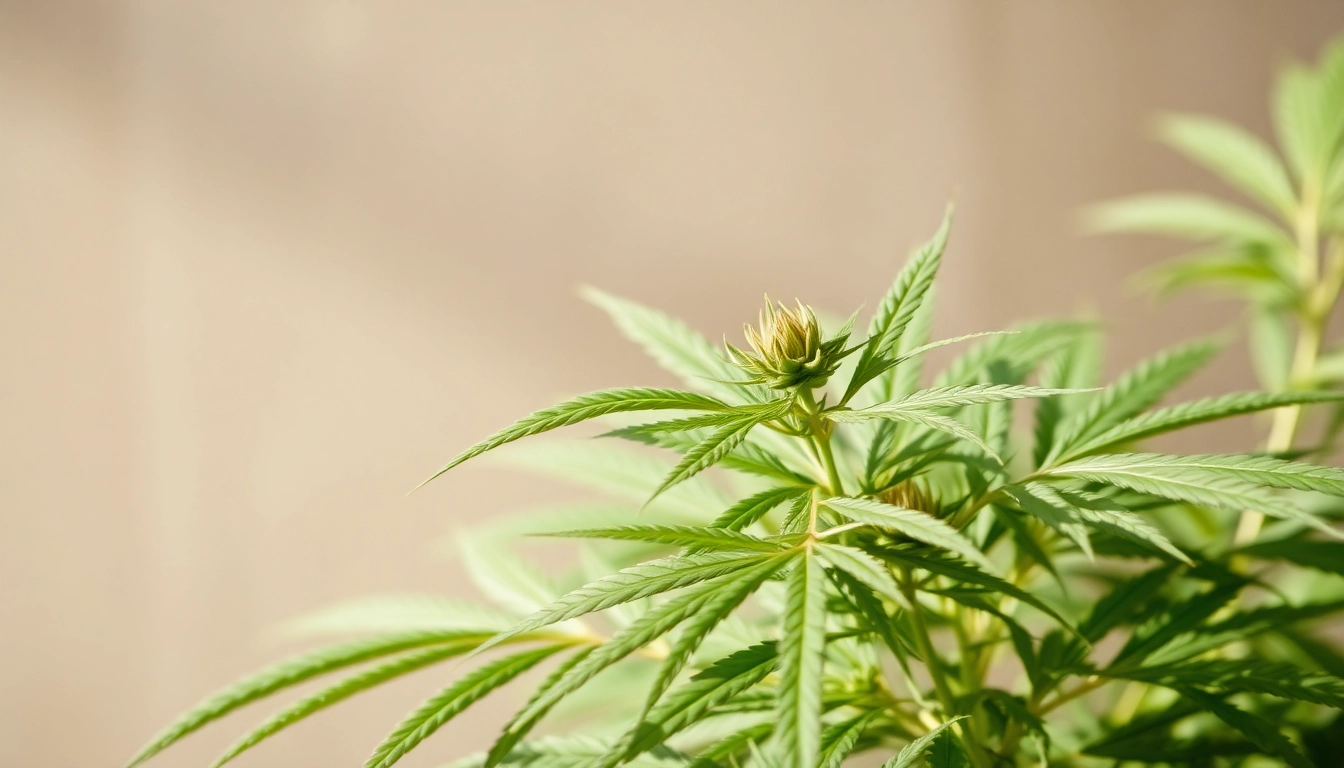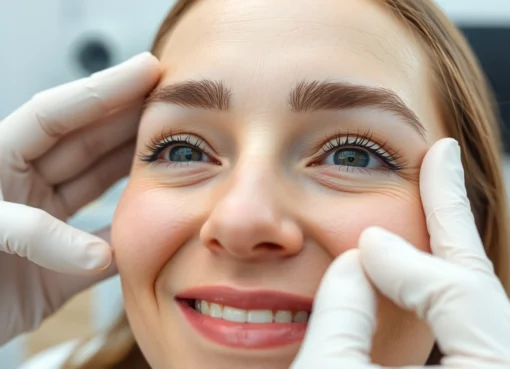Harnessing Hemp Therapy: Effective Strategies for Natural Wellness

Introduction to Hemp Therapy and Its Growing Popularity
Hemp therapy has emerged as a prominent natural approach to wellness, capturing the interest of health-conscious consumers worldwide. Its extensive history dates back centuries, with various cultures utilizing hemp-derived products for medicinal, spiritual, and everyday purposes. Today, modern scientific research continues to validate many of these traditional uses, reinforcing hemp’s potential as a cornerstone of holistic health regimens. If you’re eager to explore how hemp therapy can enhance your well-being, visit Hemp Therapy for comprehensive resources and guidance.
What is Hemp Therapy and Its Historical Uses
Hemp therapy encompasses a broad range of practices utilizing hemp-derived compounds to improve physical and mental health. Historically, hemp has been cultivated for thousands of years, with evidence of its use in ancient China, the Middle East, and Europe. Traditional applications included alleviating pain, reducing inflammation, promoting relaxation, and supporting sleep. For instance, ancient Chinese texts reference hemp-based remedies for conditions like arthritis and anxiety, highlighting its longstanding role in natural medicine. Recognizing these historical roots provides context for modern applications and ongoing research into hemp’s therapeutic benefits.
Current Trends and Scientific Research Backing Hemp Benefits
The past decade has seen a surge in scientific investigations into hemp’s active compounds, especially cannabidiol (CBD) and cannabigerol (CBG). Numerous clinical studies suggest that hemp extracts can support pain management, reduce anxiety, and improve sleep quality without the psychoactive effects associated with THC. The mechanisms involve interaction with the endocannabinoid system, a complex network regulating various physiological processes. These scientific insights bolster consumer confidence and promote the integration of hemp into mainstream health practices, driving the industry’s rapid growth and acceptance.
Common Misconceptions About Hemp and Its Therapeutic Potential
Despite increasing popularity, misconceptions about hemp persist. Some believe all hemp products contain THC and produce intoxicating effects; however, legal hemp contains less than 0.3% THC, ensuring non-intoxicating consumption. Others assume hemp therapy is only for specific conditions, but its applications are broad, ranging from chronic pain to mental health support. Additionally, misinformation about safety and efficacy can hinder informed decision-making. Addressing these misconceptions through education and reliable product sourcing is essential for maximizing therapeutic benefits safely.
Key Components and Forms of Hemp Therapy
Understanding CBD, CBG, and Other Active Compounds
The therapeutic potential of hemp largely derives from its phytochemicals, with CBD (cannabidiol) being the most studied. CBD is renowned for its calming, anti-inflammatory, and pain-relieving properties. Another emerging compound is CBG (cannabigerol), which may offer neuroprotective benefits and support digestive health. Besides CBD and CBG, hemp contains other minor cannabinoids and terpenes—aromatic compounds contributing to the entourage effect, where combined compounds produce a more significant therapeutic outcome than isolated ones.
Different Delivery Methods: Oils, Topicals, Edibles, and More
Hemp products are available in various formats, each suited for different preferences and treatment goals:
- Oils and Tinctures: Fast-acting, allowing precise dosage via sublingual administration.
- Topicals: Applied directly to the skin for localized relief of pain or inflammation.
- Edibles: Gummies, capsules, or beverages that offer a discreet, long-lasting effect.
- Vapes and Inhalers: Provide rapid absorption for acute symptom management.
- Suppositories and Other Forms: Target specific areas or conditions with specialized applications.
Choosing High-Quality Hemp Products for Optimal Results
Quality assurance is crucial in hemp therapy. Consumers should look for products tested by third-party laboratories to verify cannabinoid content and purity. Organic cultivation practices, CO2 extraction methods, and transparent labeling further indicate reputable brands. Ensuring products are free from pesticides, heavy metals, and residual solvents guarantees safety and effectiveness. Investing in high-quality hemp products leads to more consistent therapeutic outcomes and long-term benefits.
Implementing Hemp Therapy in Daily Wellness Routines
Best Practices for Dosage and Consistent Use
Establishing proper dosing is vital for maximizing benefits and minimizing risks. Start with a low dose, often referred to as microdosing, and gradually increase until desired effects are achieved. Consultation with healthcare professionals familiar with hemp, along with keeping a dosage journal, can facilitate personalized adjustments. Consistency—taking hemp products daily as recommended—is key to stabilizing therapeutic effects over time.
Integrating Hemp into Existing Health and Wellness Plans
Hemp therapy complements various health strategies, including physical activity, nutrition, meditation, and conventional medical treatments. For example, incorporating hemp CBD into a sleep routine or post-exercise recovery plan can enhance overall wellness. Always communicate with healthcare providers before adding hemp to complex medication regimens to prevent interactions and ensure safe integration.
Tracking and Measuring Therapeutic Outcomes Effectively
Monitoring progress involves noting changes in symptoms, energy levels, mood, and sleep quality. Using digital apps or journals can help document responses to different doses and delivery methods. Over time, this data supports informed decision-making, allowing for regimen refinement and demonstrating tangible benefits to oneself and healthcare professionals.
Potential Benefits and Precautions of Hemp Therapy
Health Conditions Improved by Hemp Therapy
Research and anecdotal evidence suggest hemp therapy may alleviate various conditions, including chronic pain, anxiety disorders, depression, insomnia, and inflammatory diseases like arthritis. Emerging studies also indicate potential neuroprotective effects, supporting conditions such as Parkinson’s and Alzheimer’s diseases. While promising, individual responses vary, emphasizing the need for personalized approaches.
Possible Side Effects and Safety Considerations
Although hemp therapy is generally safe, some users may experience mild side effects such as drowsiness, dry mouth, or gastrointestinal discomfort. Rarely, interactions with medications that are metabolized via the liver’s cytochrome P450 system can occur, requiring caution. Always start with lower doses, monitor responses, and consult healthcare professionals—especially if pregnant, nursing, or on medication.
Legal Status and Ensuring Compliant Use of Hemp Products
Legal regulations governing hemp products vary globally and within countries. In many regions, hemp with less than 0.3% THC is legal for sale and use, but consumers must verify local laws. Purchasing from reputable sources that provide testing certificates ensures compliance. Staying informed about legal updates minimizes risks and supports responsible consumption.
Future Outlook and Innovations in Hemp Therapy
Emerging Trends and New Formulations
Innovation continues to drive hemp therapy forward, with new formulations such as nano-emulsified extracts for enhanced bioavailability, water-soluble products, and personalized dosing regimens. Advances in terpene profiles aim to amplify therapeutic effects through the entourage effect. Additionally, novel delivery systems are making hemp more accessible and easier to incorporate into daily routines.
Research Opportunities and Ongoing Clinical Studies
The scientific community is actively exploring hemp’s potential across various health domains. Ongoing clinical trials are examining its role in pain management, neurodegenerative diseases, metabolic health, and mental health support. These studies aim to fill knowledge gaps, establish standardized dosages, and expand evidence-based applications.
How to Stay Informed and Choose Reputable Providers
Staying current involves following reputable journals, industry news, and professional organizations dedicated to hemp research. When selecting providers, prioritize transparency, third-party testing, and adherence to regulatory standards. Read customer reviews and seek recommendations from healthcare professionals to ensure products meet safety and efficacy criteria.


